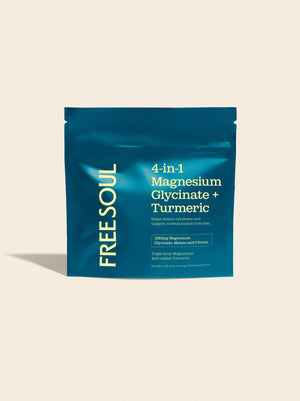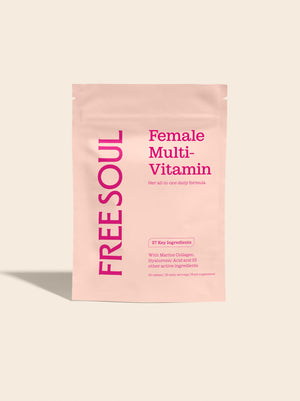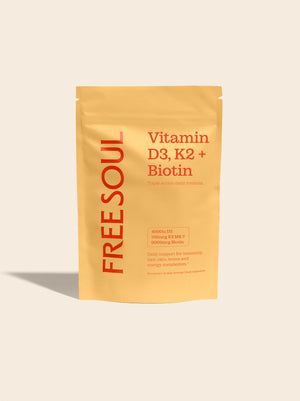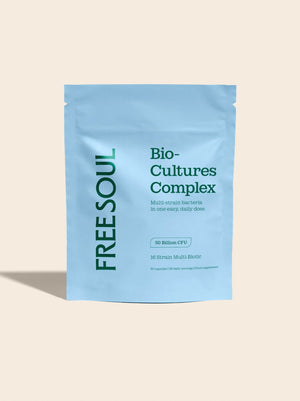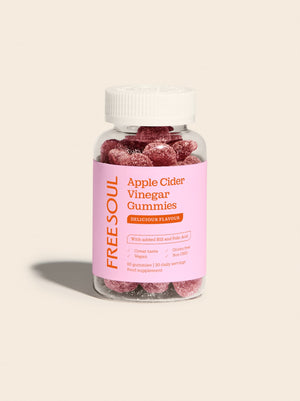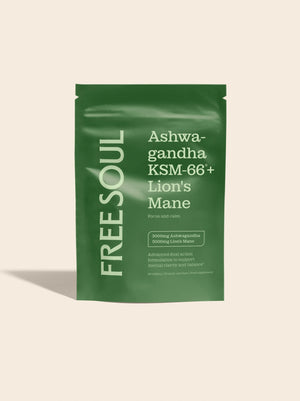The word “protein” comes from the ancient Greek word “proteios”, meaning “of prime importance”, a pretty spot-on reflection of its importance in our bodies. While the ancient Greeks may not have understood amino acid sequences, it seems they did recognise the significance of this vital macronutrient.
Today, science confirms that protein is not only essential for muscle growth and repair but also fundamental for metabolism, immune defence, hormonal balance and bone structure.
Our protein needs go far beyond building muscles; it’s a critical nutrient for everyone, especially women. The hormonal shifts we experience at different stages of life impact muscle, bone and metabolic function, all increasing our protein needs.
Why Protein Matters Beyond Muscle
Protein is built from amino acids (20 in total), with nine considered essential because they must come from the food we eat. The other 11 are classed as non-essential, a bit misleading as they are very much essential for life. What it really means is they don’t have to be eaten as we can ‘make’ those amino acids in the body, provided we eat a nutrient-rich diet[1].
These amino acids combine to form different proteins that build and maintain every cell in the body[2]. They also help produce the antibodies that defend against infection, hormones, neurotransmitters and immune molecules[3] and the hormones that regulate everything from hunger to reproduction.
Some proteins provide structure (like keratin for skin, hair and nails), while others act as transporters (think red blood cells) or regulate fluid balance (such as albumin, which transports molecules like hormones and fatty acids through your bloodstream)[4].
The body's demand for protein becomes more apparent with age. Without sufficient intake, the body begins to break down muscle tissue to supply amino acids to other essential systems. This is why getting enough protein is so important for healthy ageing and why it’s never too early (or late) to lay the foundations for getting older.
Protein, Muscle and Female Physiology
Muscle is now recognised as central to health, beyond just strength and movement. Here’s why:
- Whole-body metabolism – Muscle consumes a lot of energy and stores nutrients like glucose, so it has a big impact on your body’s energy expenditure[5].
- Muscle loss – From around age 30, women begin to lose muscle mass, so muscles' role in energy metabolism is even more significant[6].
- Muscle loss acceleration causes – We lose muscle faster when sedentary[7] and even faster during and after menopause, when oestrogen levels decline[8].
- Muscle protein synthesis (MPS) – Oestrogen plays a role in stimulating MPS and its absence can blunt the body’s response to both exercise and dietary protein[9].
- Glucose disposal – Muscle acts as a “glucose sink” that helps regulate blood sugar and improve insulin sensitivity[10].
Left unchecked, this loss of muscle (known as sarcopenia) can lead to weakness, reduced metabolic rate, impaired glucose control and increased risk of falls and frailty in later life. That’s why it's so important for women to protect their muscle mass proactively, through regular resistance training and mindful daily protein intake.
How does protein support metabolic health?
Protein isn’t just important for muscle. It plays a role in blood sugar balance, appetite regulation, and long-term metabolic health. Here’s how:
- Helps balance blood sugar – Unlike carbohydrates, Protein doesn’t spike your blood sugar. Instead, it stimulates insulin release in a more gradual and sustained way, helping your energy levels stay stable post-meal and making it easier for your body to switch between fuel sources[11]
- Supports insulin sensitivity – Muscle is your body’s biggest storage site for glucose. When you have more muscle (and enough protein to maintain it) your body can regulate blood sugar more effectively, reducing the risk of insulin resistance and type 2 diabetes[12].
- Naturally curbs your appetite – Protein is also the most filling macronutrient. It increases the release of satiety hormones (like peptide YY and GLP-1) while suppressing ghrelin, the “hunger hormone”, making it easier to stay satisfied between meals[13].
- Boosts calorie burn – Protein has a high thermic effect, meaning your body uses more energy to digest it than carbohydrates or fats. Up to 30% of the calories in protein are burned just through digestion[14], absorption and assimilation, compared to just 5–10% for carbohydrates and 0–3% for fats[15]. This means you have higher energy expenditure at rest throughout the day.
Amino Acids and the Importance of Leucine
All proteins are made of amino acids and among the nine essential ones, leucine stands out.
What is leucine and why it matters
- It plays a role in triggering the biological process your body uses to build and repair muscle[16].
- This becomes especially important as we age, when our muscles may become more resistant to growth signals.
How to get enough
Leucine-rich foods include eggs, dairy, meat, and whey protein. Aim to consume around 2.5–3 grams of leucine per meal, especially if you’re mid-life or older and want to maintain muscle mass[17].
Tip: If you avoid meat or dairy, your protein choice is key. Free Soul Vegan Protein Blend is formulated to help meet your amino acid needs, including leucine, with plant-based ingredients.
Collagen: the Structural Protein
Collagen is a protein and makes up roughly 30% of total body protein content[18]. Its role? Structure, strength and support. Collagen forms the primary scaffold for skin, cartilage, tendons, ligaments and bone matrix.
In bone, collagen provides flexibility and shock absorption. Without it, bone becomes brittle and prone to injury.
Why collagen matters for women
Collagen production naturally declines with age, especially post-menopause[19]. This leads to visible signs of ageing, weaker joints, and lower bone density.
Can you support collagen through diet?
Yes, the body can make collagen from amino acids like glycine, proline, and hydroxyproline. However, research suggests that dietary collagen peptides can stimulate the synthesis of new collagen when combined with Vitamin C[20]. Clinical studies have shown improvements in joint comfort and bone density among women supplementing with collagen[21].
Collagen is a great addition to your routine, but it should not replace your intake of complete protein sources. Think of it as a supportive add-on, not a standalone solution.
Tip: Free Soul CreaGlow contains Naticol® Marine Collagen, shown to support skin, joints, and bones when taken consistently.
Why Timing and Quality Matter: The Case for Protein Distribution
Most women consume most of their protein at dinner, but studies show this pattern isn’t ideal for our bodies[22]. To get the most from your protein intake, when and how you eat it matters just as much as the quantity.
Even distribution = better results. Your body builds and repairs muscle through muscle protein synthesis, which is maximised when you eat protein evenly across the day, not all in one go [23].
How Much Protein Do Women Need?
The UK Reference Nutrient Intake (RNI) for protein is currently 0.75 g/kg of body weight per day[24]. But this is just the bare minimum to avoid deficiency. It doesn’t reflect the optimal target for preserving muscle mass, metabolism, and healthy ageing[25].
A higher intake is recommended for active individuals and older adults. Most research suggests:
- 1.2 to 1.6 g/kg body weight per day[26]
- Approx 20g protein per meal, with even distribution[27],[28]
Tip: Resistance exercise is strongly recommended to reap the full benefits of protein.
How creatine can help women
Creatine is a compound made from the amino acids arginine, glycine and methionine – but it is not a protein itself. It is stored in skeletal muscle and helps regenerate ATP, the main energy currency your body uses during exercise.
Though often associated with male athletes, creatine is increasingly recognised for its benefits in women across all ages, and the research is growing fast.
Women naturally have lower creatine stores than men, and oestrogen may influence how efficiently creatine is used. Creatine studies have shown that it may support:
- Lean muscle mass and strength
- Endurance and reduced fatigue
- Mental focus and clarity
- Energy and mood during hormonal changes like perimenopause[29].
Creatine is a safe and extensively studied supplement. It has high efficiency and is an effective choice to support muscle, brain and energy function, especially when combined with sufficient dietary protein[30].
Tip: New to creatine? Free Soul’s trio of options are designed specifically for women, so you can find the perfect fit for your goals and lifestyle.
Protein Strategies Across the Female Life Course
Protein plays a role in every cell and function in the body, and for women, needs shift over time. From building strong bones and muscles in early adulthood, through supporting hormonal shifts during perimenopause, to preserving strength and independence later in life.
Strategic protein intake can help manage weight, balance blood glucose, improve recovery, and reduce age-related muscle loss.
In Your 20s and Early 30s: Laying the Foundation
This is the time to invest in your future. In your 20s and early 30s, your body is building peak bone mass and muscle, essential reserves for lifelong health.
Protein plays a major role here, supporting:
- Lean muscle development
- Bone strength and density
- Balanced energy and blood sugar levels
- Hormonal health and menstrual cycle support
- Recovery from exercise and stress
Focus for this stage: Build strength, support your metabolism, and lay strong foundations for the years ahead.
In Your 30s and Early 40s: Staying Strong Through Life’s Demands
As life gets busier, balancing work, family, fitness or all of the above, your protein needs continue to be key. This is a time when many women notice subtle changes in body composition, energy and metabolism.
Without enough protein, it becomes harder to maintain muscle and feel your best. Protein helps with:
- Fullness between meals and balanced blood sugar
- Mental clarity during busy, demanding days
- Strength, stamina, and workout recovery
- Tissue repair, immune function and energy during pregnancy, postpartum or breastfeeding
Focus for this stage: Protect lean mass, stay energised and support hormonal balance - especially during times of physical and emotional demand.
Perimenopause: Navigating Hormonal Shifts
During perimenopause, your hormones start to fluctuate more noticeably, and with that comes disrupted sleep, increased belly fat, mood swings, and slower recovery from exercise. This is your body adjusting to lower oestrogen levels, and at this time, protein becomes a powerful ally.
At this stage, your body starts to lose muscle more rapidly and becomes less efficient at using the protein you eat. That is why timing and quality matter even more. At this time, protein can help:
- Slow down muscle loss
- Support stable blood sugar levels and reduce cravings
- Feeling fuller and satisfied throughout the day
- Energy and mood stability
- Support exercise performance, recovery, and weight management when paired with resistance training.
Focus for this stage: Maintain muscle, manage blood sugar, and ease the effects of hormonal change.
Post menopause: Preserving Strength, Mobility and Independence
After menopause, the drop in oestrogen accelerates bone loss and makes maintaining muscle more challenging. Without enough protein and movement, the risk of falls, fatigue and frailty increases.
Protein helps:
- Preserve muscle and bone strength
- Support blood sugar balance and sustained energy
- Protect cognitive function and mood
- Mobility and independence, when combined with resistance training
Focus for this stage: Stay active, prevent muscle loss and support longevity.
Does Protein quality matter?
Throughout every phase of life, it's not just about eating more protein, but about eating the right protein and spreading it consistently throughout your day. A good protein source provides all nine essential amino acids your body needs.
Complete protein sources include:
- Animal-based – eggs, dairy, poultry, fish and lean meat
- Plant-based – soy, quinoa, buckwheat and chia seeds
-
Protein Blends – Powders that provide a complete amino acid profile
Aim for a source of protein at every meal to support muscle repair, blood sugar balance, and energy. You’ll feel fuller for longer, maintain strength more easily and help future-proof your body in the process.
How Free Soul makes daily protein easier
Getting enough protein shouldn’t be complicated, and with that in mind, we’ve made it as simple (and tasty) as possible.
Made from high-quality Pea and White-Hemp Protein, our Vegan Protein Blend has a complete amino acid profile. It’s easy to absorb, delicious in everything from smoothies to oats, and provides the fuel your body needs to feel strong and energised. Just one scoop provides a nutrient-dense boost, no guesswork required.
Free Soul Marine Liquid Collagen
Each sachet contains 8,000mg of hydrolysed marine liquid collagen, enriched with Hyaluronic Acid, Keratin and Vitamin C. It’s designed to support skin elasticity, hair strength, nail health and joint comfort. A simple way to care for your beauty and body from within.
Two gummies provide 150mg of Type 1 Hydrolysed Marine Collagen, a protein that helps support normal hair, skin, and nails. A delicious strawberry-flavoured ritual to enjoy on the go.
Free Soul Women’s Multivitamins with Collagen and Hyaluronic Acid
A comprehensive combination of 27 essential vitamins and minerals formulated to support women’s well-being. We’ve included Type 1 Marine Collagen and Hyaluronic Acid to support healthy hair, skin and nails.
Micronised Creatine Monohydrate is blended with Naticol® Marine Collagen to support both physical performance and beauty goals. Together, they contribute to endurance, muscle maintenance, and inner radiance.
Key Takeaways:
- Protein is foundational across all life stages; it’s not just for muscle, but for bones, immune function, metabolism and long-term health
- Women’s protein needs change over time, especially during periods of hormonal fluctuation like perimenopause and menopause.
- Creatine is an evidence-based addition, especially for women, as it works alongside protein to enhance strength, brain health, energy, and resilience
- Distributing protein evenly throughout the day helps maximise muscle protein synthesis and overall impact.
- Prioritising quality protein sources, including complete plant-based options, supports strength, energy and healthy ageing.
Conclusion
Protein isn’t just about building muscle. It supports almost every function in your body, from energy and focus to hormone balance and longevity.
Across every life stage, from your 20s to post-menopause, protein plays a vital role in how you move, think, and feel. Yet many women still don’t get enough, especially during the phases when it matters most.
By adjusting your intake to suit your life stage, spreading protein evenly across your meals, and pairing it with resistance training (and smart supplements like Creatine), you can preserve lean mass, support metabolic and hormonal health, stabilise blood sugar and boost your overall wellbeing.
From enzyme production to immune defence, protein is the nutritional anchor that helps you stay strong, energised and independent – now, and in the years to come.
Think of protein not as a diet hack, but as a daily investment in your strength, vitality and future self.



